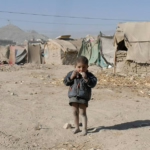A version of this article appears in the Witness section of the Summer 2019 issue of the New Humanist. Subscribe today.
The word “biodiversity” refers to the broad variety of life on Earth, to flora and fauna’s interactions with each other, and with the environment. It was more formally defined in the UN’s 1992 Convention on Biological Diversity as “the variability among living organisms from all sources including, inter alia, terrestrial, marine and other aquatic ecosystems and the ecological complexes of which they are part: this includes diversity within species, between species and of ecosystems.”
Biodiversity is vital to life on this planet, as all species are interconnected, often depending on each other for their continued existence. Losing any species from this chain – however small – weakens these connections. Writing in the 1980s, the conservation researchers Paul and Anne Ehrlich compared species’ roles in the ecosystem to rivets in a plane’s wing: losing one rivet might be sustainable, but each loss makes a disaster for the aircraft more likely.
Just how close that disaster is – how many rivets from the plane wing have been lost – is what the Intergovernmental Panel for Biodiversity and Ecosystem Services, or IPBES, is seeking to assess. This month, the group of researchers published an extensive report on humanity’s relationship with nature – the first of its kind since 2005. The report, produced by 150 experts from more than 50 countries, who looked at 15,000 sources, is significant because it sought agreement from policymakers from 132 countries on the need to protect natural systems. In advance of its publication, the authors told the BBC that it would highlight the “social and ecological emergency” the world is now facing. It details the past losses and future prospects for nature and humans, warning that tens of thousands of species face an uncertain future.
The report warns that we are on the brink of a rapid acceleration of the global rate of loss of species. The threat these losses pose – and the challenge that presents – is on a par with climate change. It also highlights the threat to humans if the devastation of nature continues.
In our Spring 2018 issue, Will McCallum wrote about the need to adjust to a world already irrevocably changed by human actions. “First we convince ourselves of our ability to save everything – and when that fails, we move on without critically examining our failures,” he wrote. “Our adaptability as humans is a strength, but it can also be a weakness.”

